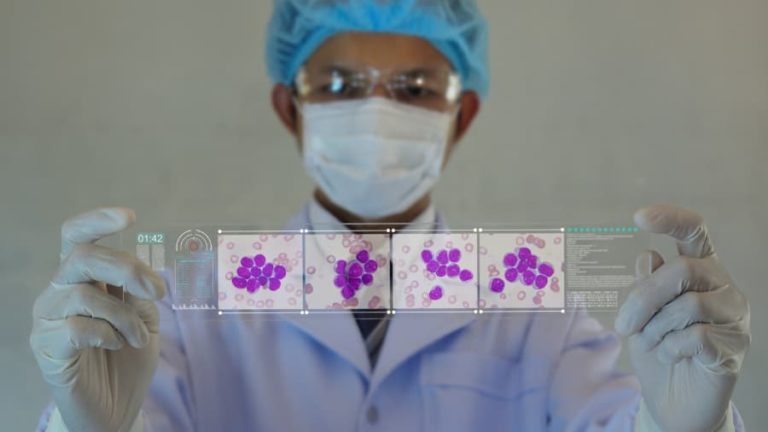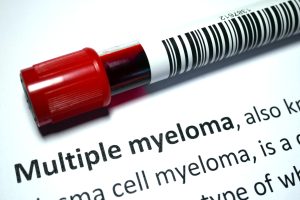
24 RCCA Physicians Named to 2025 Castle Connolly ‘Top Doctors’ List for Exceptional Cancer Care
A cancer diagnosis can be frightening. An individual may worry about how, or if, they will get better. The future becomes unclear and the strain
HIPAA Alert: Potential Data Breach Learn More
Questions on Oncology, Hematology and/or Infusion Clinical Services due to COVID-19 Crisis – CALL 833-698-1623
Important Information for Our Patients Regarding the Coronavirus.
RCCA Providing Area Cancer Patients with Access to Care During Coronavirus Outbreak
RCCA Offering Patients Virtual Visits During Coronavirus Pandemic
Acute myeloid leukemia (AML) is one of the most common and fastest-spreading types of leukemia, accounting for nearly one-third of leukemia diagnoses. AML can progress rapidly if left untreated, so receiving an accurate diagnosis and beginning treatment as promptly as possible is crucial to promoting a positive outcome.
Our team of skilled oncologists at Regional Cancer Care Associates offers comprehensive, state-of-the-art care for AML. At any of our locations in Connecticut, Maryland, or New Jersey, we can help relieve your symptoms and restore your quality of life.
Unlike other cancers, leukemia doesn’t originate in a single organ. Instead, it affects the blood and circulates throughout the body. AML starts in the bone marrow, where new blood cells are made. By attacking the stem cells that produce white blood cells, AML prevents healthy cells from fully maturing. The result is a population of white blood cells that can’t perform their role in fighting infection.

Most patients with AML don’t experience specific symptoms related to the cancer, but instead confront symptoms of some other infection that their body cannot effectively fight due to AML. These infections can cause weight loss, fatigue, and fever, but in some cases patients may show signs of low red blood cell counts (anemia) or a platelet deficiency, including:
Certain populations are more at risk of AML than others. For instance, men are at a slightly higher risk than women. Individuals older than age 45 are also at risk, as are those with a family history of leukemia. AML risk also is higher in people with:
Outside of age, sex, and genetics, some external risk factors are linked to AML. Smoking is the most significant risk factor, as cancer-causing substances in tobacco can be absorbed into the bloodstream. Exposure to high-dosage radiation can also trigger AML, as can long-term exposure to benzene and other workplace chemicals. Certain chemotherapy drugs may also increase risk.
At Regional Cancer Care Associates, we understand that no two leukemia diagnoses are alike. We’ll work with you to evaluate your medical history and risk factors to devise a personalized treatment plan, which may include one or more of the following:
If you or a loved one has been diagnosed with AML or is concerned about symptoms, learn more about treatment by scheduling an appointment at Regional Cancer Care Associates. We have 31 locations across Connecticut, Maryland, and New Jersey, which makes it easy for you to access the compassionate care you need wherever you are.

A cancer diagnosis can be frightening. An individual may worry about how, or if, they will get better. The future becomes unclear and the strain

A lung cancer diagnosis can be life-changing, bringing uncertainty and many questions about available treatments. At Regional Cancer Care Associates (RCCA), we understand the importance

Multiple myeloma (MM) is a rare type of blood cancer that often develops without early symptoms, making awareness of risk factors essential. Regional Cancer Care

Regional Cancer Care Associates is one of fewer than 200 medical practices in the country selected to participate in the Oncology Care Model (OCM); a recent Medicare initiative aimed at improving care coordination and access to and quality of care for Medicare beneficiaries undergoing chemotherapy treatment.